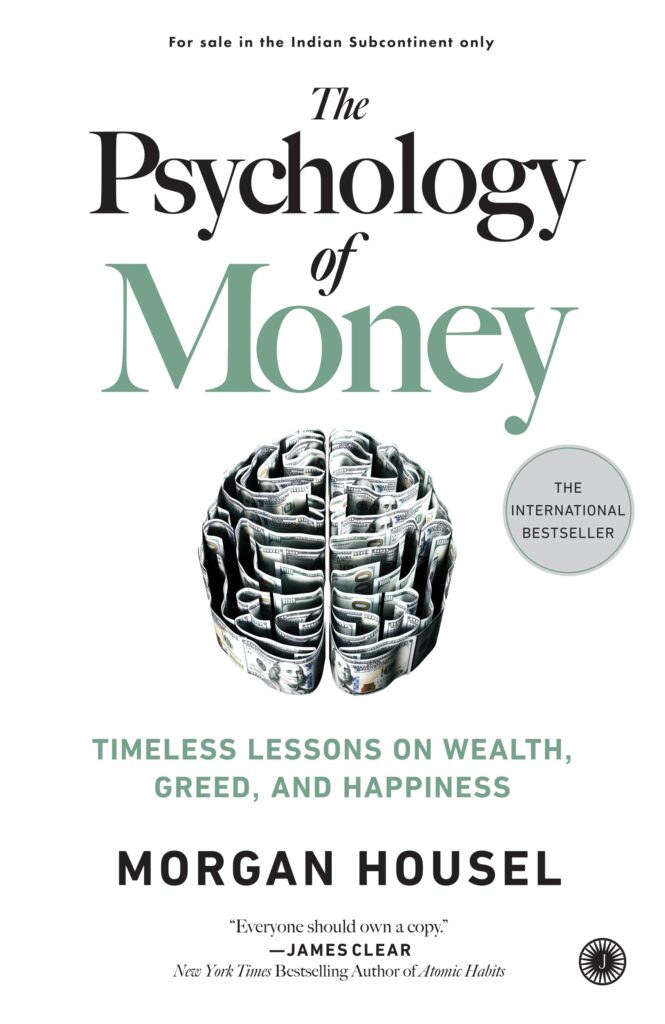Summary of book The Psychology of Money
The Psychology of Money looks at how individuals view money, make decisions, and sometimes let ego, emotion, and personal experience shape their financial behaviour. Housel notes that good financial management is more about behaviour than it is about intelligence.
Over 20 brief, perceptive chapters, he tells tales and ideas meant to inspire readers to choose a better, wiser path for wealth, savings, investment, and life satisfaction.
👠 Fundamental Message
“Doing well with money has a lot to do with your behaviour and little to do with your intelligence.”
🔑 Important Ideas & Lessons
1. Not One’s Crazy
People base financial decisions on their own experiences, which vary greatly. 👉 What seems illogical to you could make perfect sense to someone else.
2. Luck and Risk Still Matter
Not always is success skill; not always is failure a mistake. Remain modest. Factors outside of your control shape outcomes.
3. Save Money—even without a goal in mind.
Saving guarantees security, freedom, and flexibility. It’s about the choice to act when life changes, not only about later purchases.
4. Shape Everything with Tail Events.
Sometimes long-term results depend on a small number of events, such as a large investment or one error.
👉 Emphasise keeping in the game and avoiding ruin.
5. The Ultimate Dividend is Freedom
The greatest kind of riches is your capacity to manage your time. Money should purchase freedom rather than only goods.
6. Wealth: Not What You See
Many times, people equate success with expenditure. Like savings and investments, true wealth is hidden, not ostentatious cars or large homes.
7. The Eighth Wonder: Compounding
Your most effective financial tool is time. Start early. Show patience. Allow the magic of compound growth.
8. Gaining vs. Maintaining Wealth
Riches call for risk, audacity, and hope.
Remaining rich calls for simplicity, humility, and fear of losing it. Combine to create lifetime riches.
9. You’re Not Alone in the Market
What others are doing shapes many financial decisions. Continue using your approach. Don’t copy mindlessly or compare.
10. Reasonable Above Reasonable
You simply have to be consistent and reasonable with your financial behaviours; you are not perfect. Not only should you consider what looks best on a spreadsheet, find what works for you and your emotions.
💬 Notable sayings
“The fastest way to have less money is to spend it showing people how much you have.”
“Richness is the nice car not bought. The diamonds purchased were not great. The clothes skipped over.
✍️ Style of the Author
straightforward, accessible, and story-driven.
Makes use of psychology, history, and practical examples.
Not technical jargon; simply timeless knowledge for common people.
Good financial decisions are about behaviour rather than always about knowledge.
You will create a better and more significant relationship with money if you can control your ego, avoid extremes, respect time, and concentrate on freedom over status.
